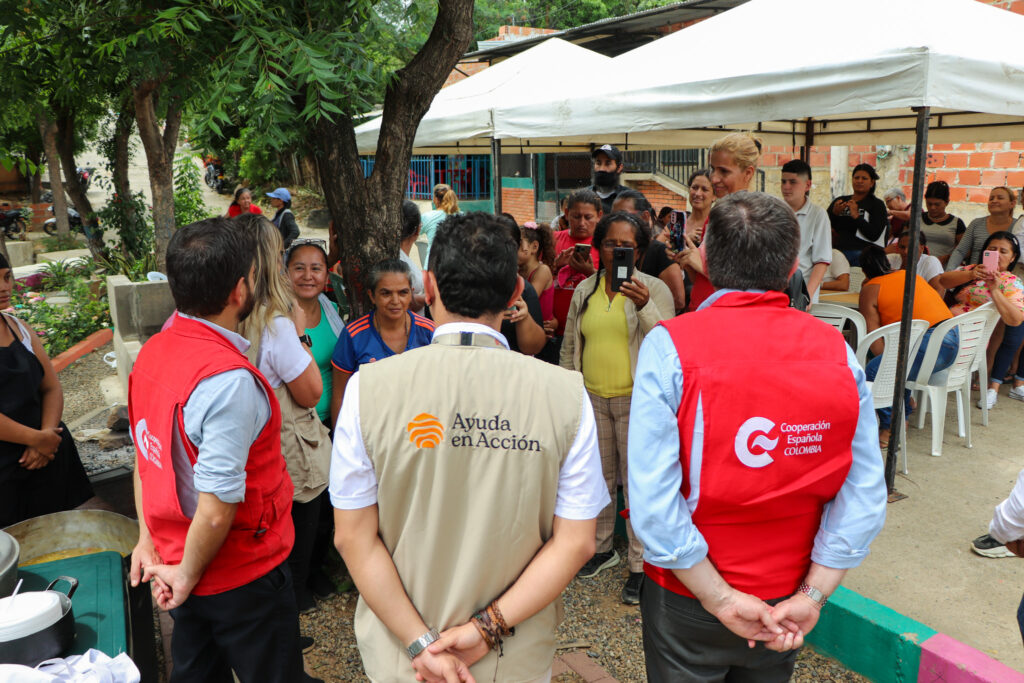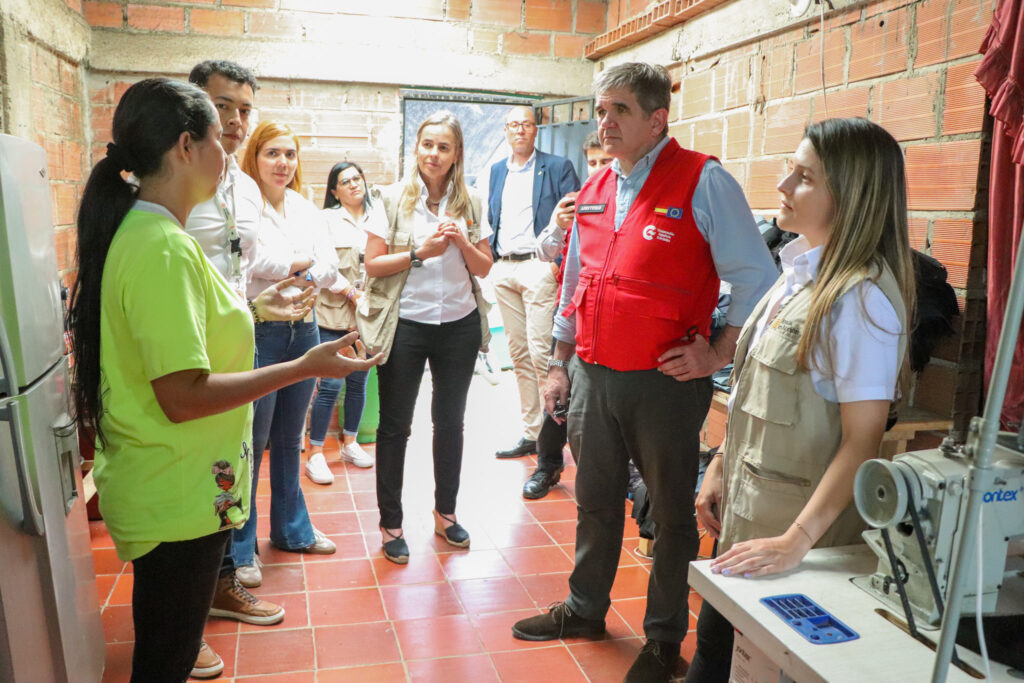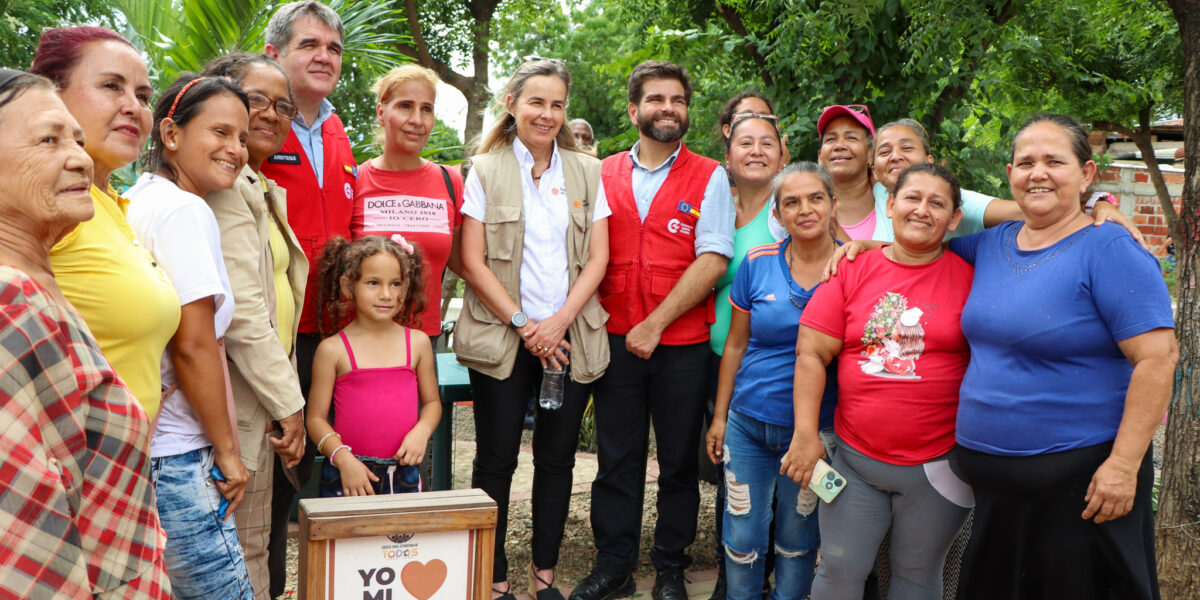To contribute to the exercise of rights and the cultural, social and economic integration of the migrant and/or refugee population and host communities in Peru, Ecuador and Colombia. This is the main goal of the new migration project launched by Ayuda en Acción.
The Fair and inclusive socio-economic recovery of the Venezuelan and host population in Ecuador, Peru and Colombia agreement is financed with three million euros by the Spanish Agency for International Development Cooperation (AECID) and implemented by Ayuda en Acción in collaboration with Banco Codesarrollo, WWB Foundation and Perspektiva.
This new regional migration project, which will run for four years, will be based on the Triple Nexus approach and will focus on three areas: economic integration, culture of peace, and social protection and cohesion.
This intervention is expected to benefit 7,240 people. The majority, 70%, will be Venezuelan people in a situation of human mobility, while the remaining 30% will be the host population. It is also expected that 65% of all beneficiaries will be women due to the project’s strong gender focus.
“The agreement seeks to improve the living conditions of Venezuelan migrants and refugees and the vulnerable host population by increasing their income and their integration in these three countries,” says Estefanía Gómez, coordinator of the Ayuda en Acción project, who emphasizes that “in the following years, we expect to strengthen at least 580 enterprises”.

Cristina Lippi, Deputy Head of the NGDO Department at AECID, highlights the strengths of this type of coordinated interventions: “Agreements are the best form of cooperation through civil society because they allow us to achieve strategic objectives, their dialogue process is the pure essence of cooperation and allows us to reach a meeting point between the needs of cooperation and the proposals of the organizations. In addition, they allow us to adjust the circumstances during the course of the intervention, allowing us to carry out in real time the activities that respond to the objectives set, but, above all, they allow us to have a greater impact: social, economic and strategic”.
Migration context in Colombia, Peru and Ecuador
Colombia, Ecuador and Peru are the Latin American countries that host the largest number of migrants and refugees from Venezuela. These people in mobility are not only looking for means of subsistence, but also for inclusion in the societies that could become their new home.
Although the context is different in each host country, the needs of the Venezuelan population identified up to 2023 are the same:
- Income generation
- Access to documentation and regularization
- Access to information and guidance,
- Mitigation of discrimination
- Access to humanitarian assistance and social programs.

Key points of the regional migration project
In order to address these identified needs, the project will focus on:
- Economic integration: entrepreneurship and access to regularized financial services will be promoted from an approach of inclusive financial markets where the different actors involved will be integrated.
- Improvement of social cohesion and coexistence between the migrant and/or refugee population and the host population. The latter often have negative perceptions about the contribution of Venezuelan migrants or refugees to their community and face similar problems
- Strengthening of local response capacity and the coordination of institutions to meet the needs of the migrant and host populations.
- Fostering the protection and promotion of rights through a comprehensive care model.


